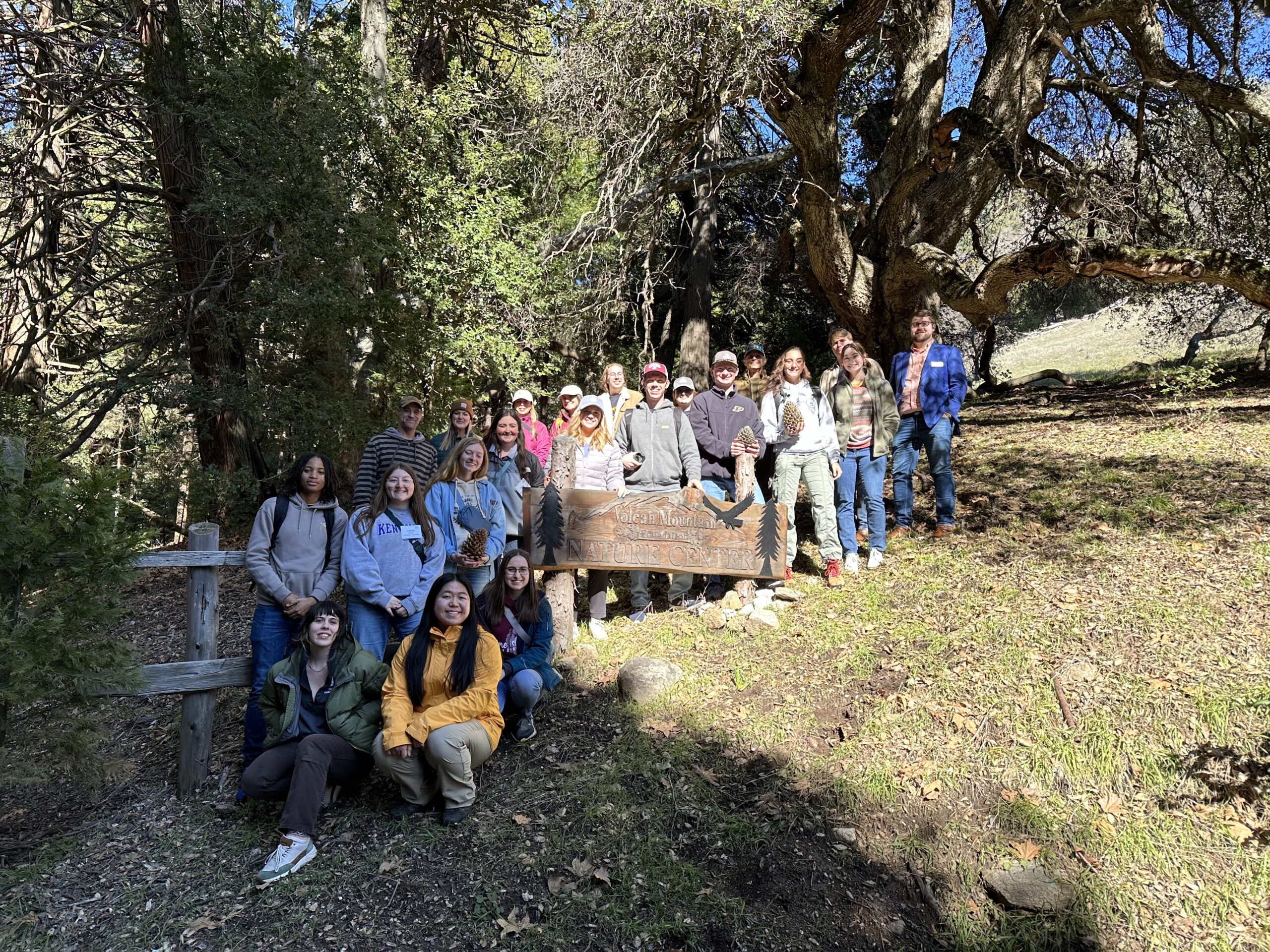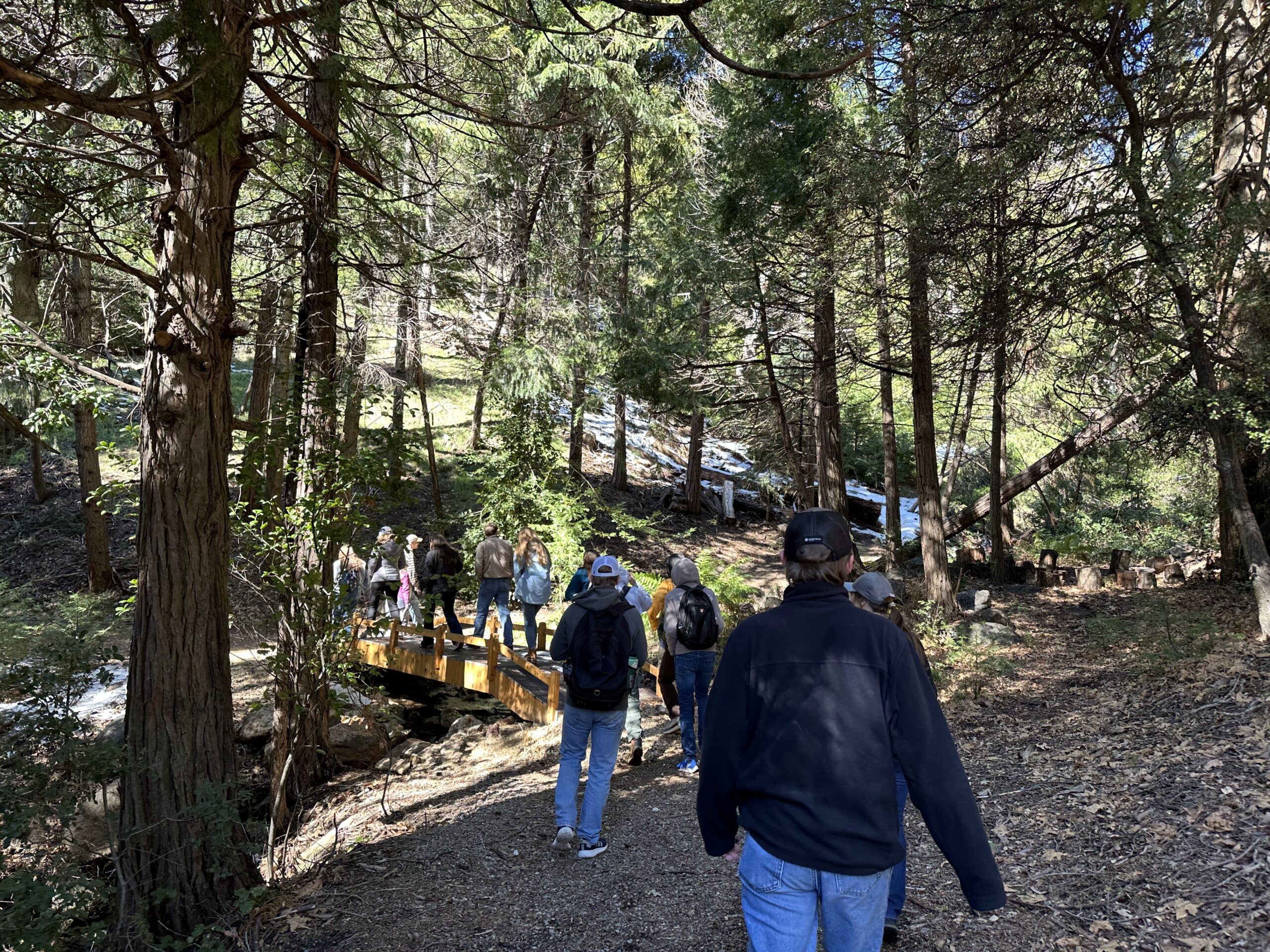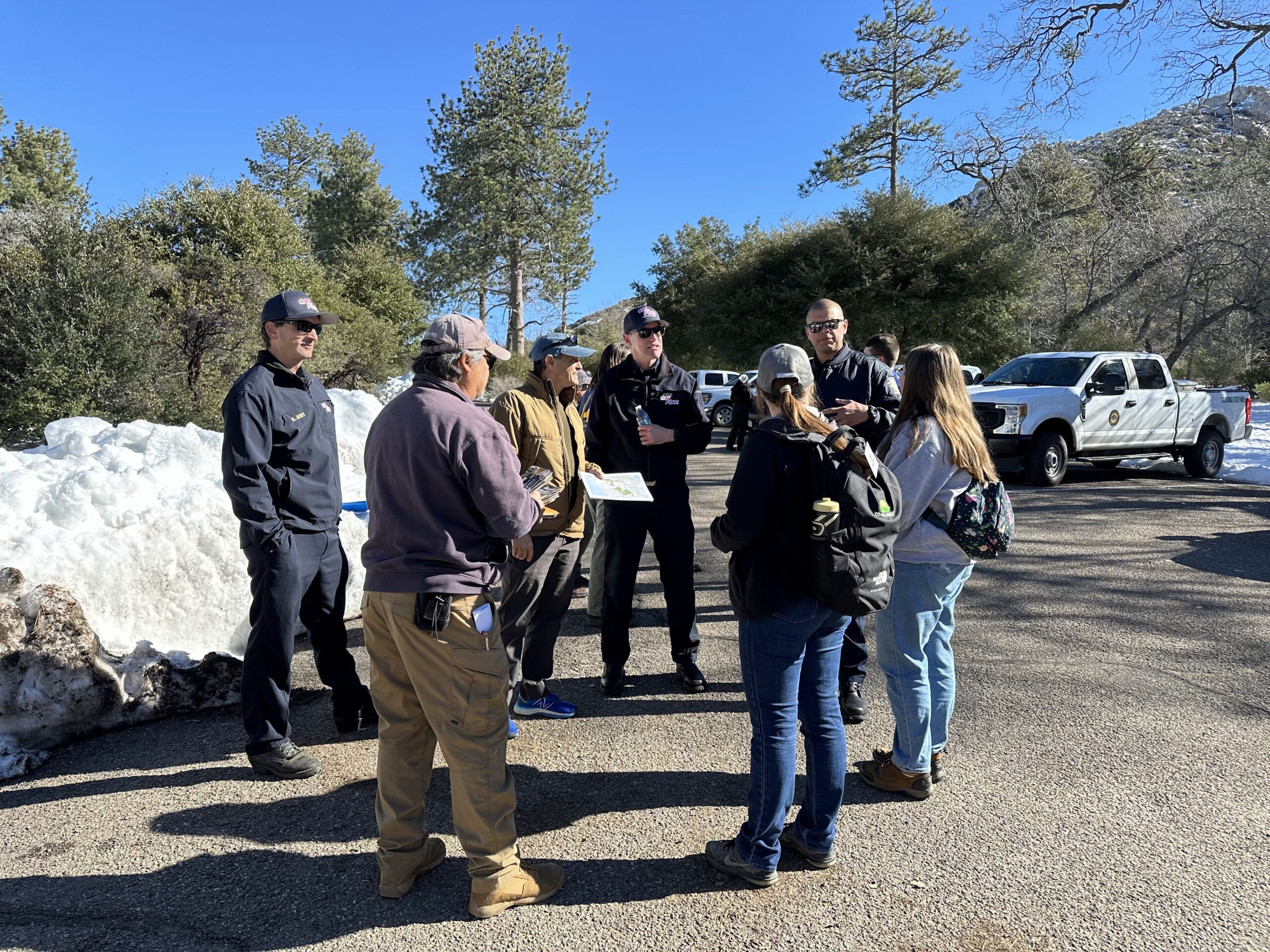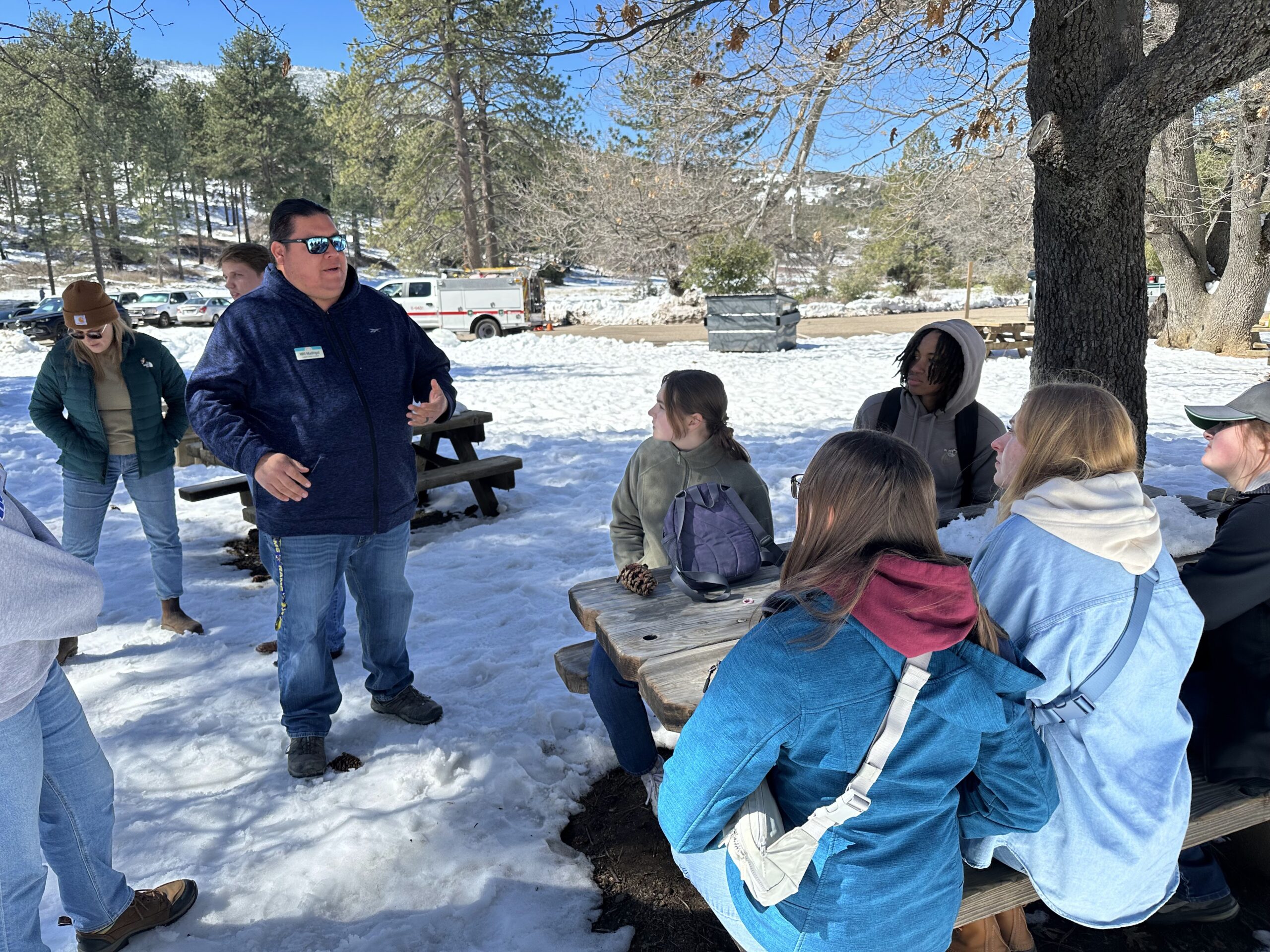Last month, the Resource Conservation District and Fire Safe Council of San Diego County hosted students attending the Agricultural Future of America (AFA) + National Associations of Conservation Districts (NACD) Sustainability Institute conference on a series of tours. While half of our staff demonstrated our various agricultural-related projects and sites, our forestry and fire team toured students through San Diego’s Montane regions to discuss fire and forest ecology. Throughout the day, students were able to interact with staff from the RCD and our partner organizations, learn about San Diego’s unique relationship to wildfire, and see work being conducted to preserve our local forests.
Beginning at a snowy campground in Rancho Cuyamaca State Park, students met with a diverse group of fire and conservation professionals. Our partners from the Native American Conservation Corps, CAL FIRE, US Forest Service, Bureau of Land Management, California State Parks, National Resource Conservation Services, and GrizzlyCorps, were present to engage with students, explaining their various roles in fire management, and answering questions about specific aspects of their work. Our partners educated students on San Diego fire history, how fire has had a tangible impact on our forests, as well as the historic land practices of our tribal communities.
After a strong and informative start to the day, students were then escorted to the Volcan Mountain Nature Center to see a fantastic example of conservation work in motion. Led by Volcan Mountain Foundation’s Jonathan Appelbaum, students were taken on a short hike through the nature center’s unique montane forest ecosystem of tall conifer trees and shaded ferns. Our tour of the nature center went to demonstrate how issues such as fire intensity, invasive species like the gold spotted oak borer, and a changing climate are impacting our local forests. All the while, students also observed work crews completing fuel reduction efforts to aid Volcan Mountain’s ongoing forest resilience projects.
The day concluded with high spirits from both the students attending our tours and our staff. The enthusiasm demonstrated by our tour attendees was inspiring to see. We are honored to have had the opportunity to share knowledge about our regional ecosystems and the hard work going toward protecting them.




